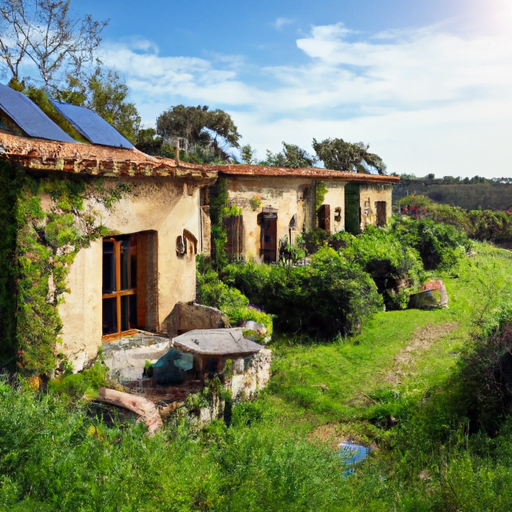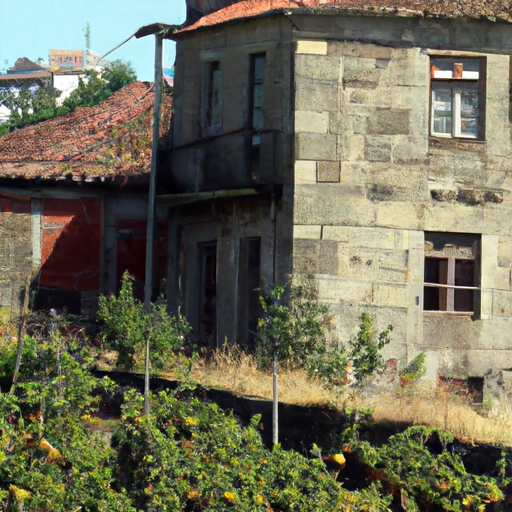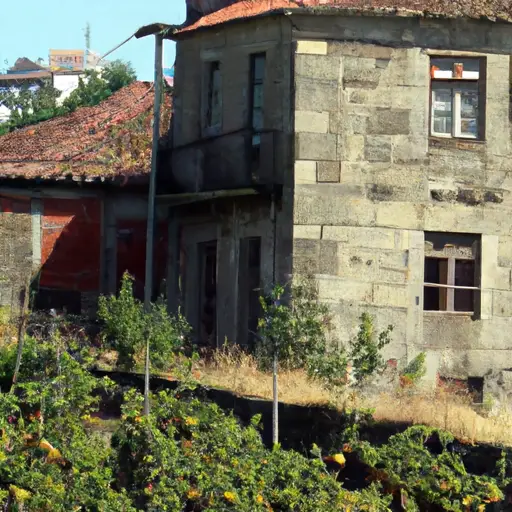Can you imagine living completely off the grid? No reliance on public utilities like electricity, water, or gas? It may sound like a far-fetched idea, but it is becoming increasingly popular for people seeking a simpler, more sustainable lifestyle. Portugal, with its temperate climate and favorable government support, has become a haven for those looking to live off the grid. In this article, we will explore everything you need to know about living off the grid in Portugal.
Living off the grid means relying solely on renewable sources of energy, such as solar panels or wind turbines, for your electricity needs. It also entails collecting and purifying rainwater for your water supply and being resourceful with your waste management. Living off the grid can be a fulfilling experience, as it allows you to have a smaller environmental footprint and live closer to nature.
Portugal, with its abundant sunshine and strong government incentives for renewable energy, is an ideal location for off grid living. The country offers various grants and tax exemptions to those who choose to generate their own green energy. Additionally, the cost of installing solar panels or other renewable energy systems has significantly decreased in recent years, making it more accessible for individuals or communities looking to embrace this lifestyle.
In this article, we will delve deeper into the practical aspects of living off the grid in Portugal. Topics such as finding the right location, obtaining permits and licenses, and connecting with like-minded communities will be discussed. So, if you are curious about off grid living or considering making the switch, keep reading to learn more about living off the grid in Portugal.

Living off the Grid in Portugal: All You Need to Know
Exploring Off Grid Living
Living off the grid has become an increasingly popular choice for individuals seeking a simpler and more sustainable lifestyle. Portugal, with its beautiful landscapes, mild climate, and abundance of natural resources, offers an ideal location for those wanting to embrace the off grid lifestyle. But can you really live off-grid in Portugal? This article will explore the advantages and challenges of living off the grid in Portugal, as well as provide essential information on choosing the right location, building your off grid home, harnessing renewable energy sources, managing water and waste, sustainable food production, and connecting with the off grid community.
Advantages of Living off the Grid in Portugal
Living off the grid in Portugal presents numerous advantages. Firstly, the country boasts a mild climate, with around 300 days of sunshine per year. This abundance of sunlight provides ample opportunity for generating solar energy, which can help reduce or even eliminate your dependence on the grid. Additionally, Portugal is known for its fertile land, making it an ideal location for sustainable food production. With its numerous organic farms and vineyards, you can easily source locally grown, fresh produce.
Furthermore, Portugal offers a lower cost of living compared to many other European countries. By living off the grid, you can significantly reduce your monthly expenses by generating your own electricity and water, as well as growing your own food. This financial freedom can allow you to focus on other aspects of your life, such as pursuing hobbies and passions or spending more quality time with your loved ones.
Challenges of Living off the Grid in Portugal
While living off the grid in Portugal presents many advantages, it is important to be aware of the challenges that come with this lifestyle choice. One of the main challenges is obtaining planning permission for your off grid home. The Portuguese legislation surrounding off grid living can be complex and bureaucratic, requiring a thorough understanding of the legal requirements and regulations. It is essential to consult with local authorities and professionals who specialize in off grid living to ensure compliance with the law.
Another challenge is the initial investment required to set up your off grid home. While the long-term cost savings are significant, the upfront costs can be high. Building a self-sufficient home, installing renewable energy systems, and implementing sustainable water and waste management solutions can require a significant financial commitment. However, it is important to view these costs as an investment in a more sustainable future, both for yourself and the environment.
Choosing the Right Location
Choosing the right location is crucial when it comes to off grid living in Portugal. While the entire country offers opportunities for sustainable living, certain regions are more conducive to this lifestyle. The Alentejo and Algarve regions, for example, are known for their sunny weather and agricultural potential. These areas offer a wide range of properties suitable for off grid living, such as old country houses and farmland. Researching and visiting different locations will help you find the one that aligns with your specific needs and desires.
Building Your Off Grid Home
When it comes to building your off grid home in Portugal, it is important to consider the local climate and architectural features. Passive solar design principles can be employed to maximize natural light and heat, reducing the need for artificial lighting and heating. Additionally, using sustainable building materials, such as straw bales or adobe, can further reduce the impact on the environment.
Harnessing Renewable Energy Sources
Generating your own energy is a key component of off grid living. Portugal offers excellent conditions for harnessing renewable energy sources, especially solar and wind power. Installing photovoltaic panels and wind turbines can provide you with a sustainable and reliable source of electricity. Additionally, utilizing batteries or a backup generator can ensure a constant power supply, even during periods of low sunlight or wind.
Water and Waste Management
Managing water and waste efficiently is vital for off grid living in Portugal. Installing rainwater collection systems and implementing water-saving practices can help reduce your dependence on external water sources. Composting toilets and greywater recycling systems can be employed to minimize water waste and promote responsible waste management.
Sustainable Food Production
Portugal’s fertile land offers ample opportunities for sustainable food production. By growing your own vegetables, fruits, and herbs, you can enjoy fresh and organic produce while reducing your carbon footprint. Additionally, raising chickens for eggs and keeping beehives for honey can further enhance your self-sufficiency.
Connecting with the Off Grid Community
Connecting with the off grid community in Portugal can provide invaluable support and guidance on your off grid journey. Attend local workshops, seminars, and events to meet like-minded individuals and share knowledge and experiences. Online forums and social media groups can also serve as platforms for connecting with the off grid community and gaining insights into off grid living in Portugal.
Conclusion
Living off the grid in Portugal offers many advantages, such as a mild climate, fertile land, and a lower cost of living. However, it also presents challenges, including obtaining planning permission and the initial investment required. By choosing the right location, building a sustainable home, harnessing renewable energy sources, managing water and waste efficiently, and embracing sustainable food production, you can successfully live off the grid in Portugal. Remember to connect with the off grid community for support and guidance, as they can provide valuable insights and experiences. Embrace the off grid lifestyle and enjoy a simpler, more sustainable way of living in beautiful Portugal.





